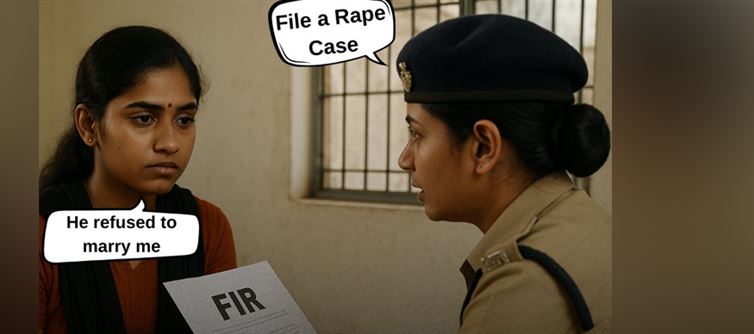
1. A Delayed FIR and Shaky Grounds
The alleged incident was said to have occurred on november 15, 2020, yet the FIR was filed almost two months later on january 11, 2021. This delay cast the first shadow of doubt. Despite this, the police invoked stringent charges under the POCSO Act based on the complainant’s statement, citing her school certificate to show she was a minor at the time.
2. The Turning Point: Victim Retracts
During trial, the complainant made a complete U-turn. She admitted openly in court that the allegations were false and fabricated, lodged only to pressure the accused’s family into accepting marriage. Even more damaging, she revealed that her earlier testimony before the magistrate was dictated by the police and that she was in fact 19 years old—not a minor as previously claimed.
3. Mother’s Testimony Exposes police Role
The victim’s mother corroborated her daughter’s claims, admitting that the case was filed on the advice of a female constable. This revelation directly points to the role of law enforcement in encouraging misuse of laws meant to protect genuine victims. The mother further clarified that the accused had committed no offence and that both families had since agreed to the marriage.
4. Medical Evidence Fails to Support Charges
Medical reports and the FSL examination did not confirm rape. With no corroborative evidence, the prosecution’s narrative crumbled. The defense’s stand—that the case was concocted—found complete backing in both oral and documentary testimony presented during the proceedings.
5. Judicial Reminder: Burden Lies on Prosecution
While acquitting the accused, Special POCSO Judge Neeraj gautam invoked a 2016 supreme court ruling which stresses that prosecution must prove guilt beyond reasonable doubt. If two views are possible, the one favoring the accused must prevail. This principle proved decisive in dismantling the shaky case.
6. A New Beginning, But Troubling Questions Remain
Post-acquittal, the accused and the complainant are now living together as husband and wife. Yet, the case leaves troubling questions in its wake:
How often are false cases being filed under stringent laws like POCSO?
What accountability exists for police officials who misuse their authority?
Should there be stricter safeguards to prevent harassment through false allegations?
The Larger Lesson
The ghaziabad case is a sobering reminder that while laws like POCSO are critical to protect vulnerable victims, their misuse damages not just reputations but also the credibility of the justice system. When police encourage false complaints and families exploit laws for personal ends, genuine survivors of abuse suffer the most.
In a nation where justice is already slow, weaponizing law as a bargaining chip is a tragedy the courts can ill afford to ignore.




 click and follow Indiaherald WhatsApp channel
click and follow Indiaherald WhatsApp channel